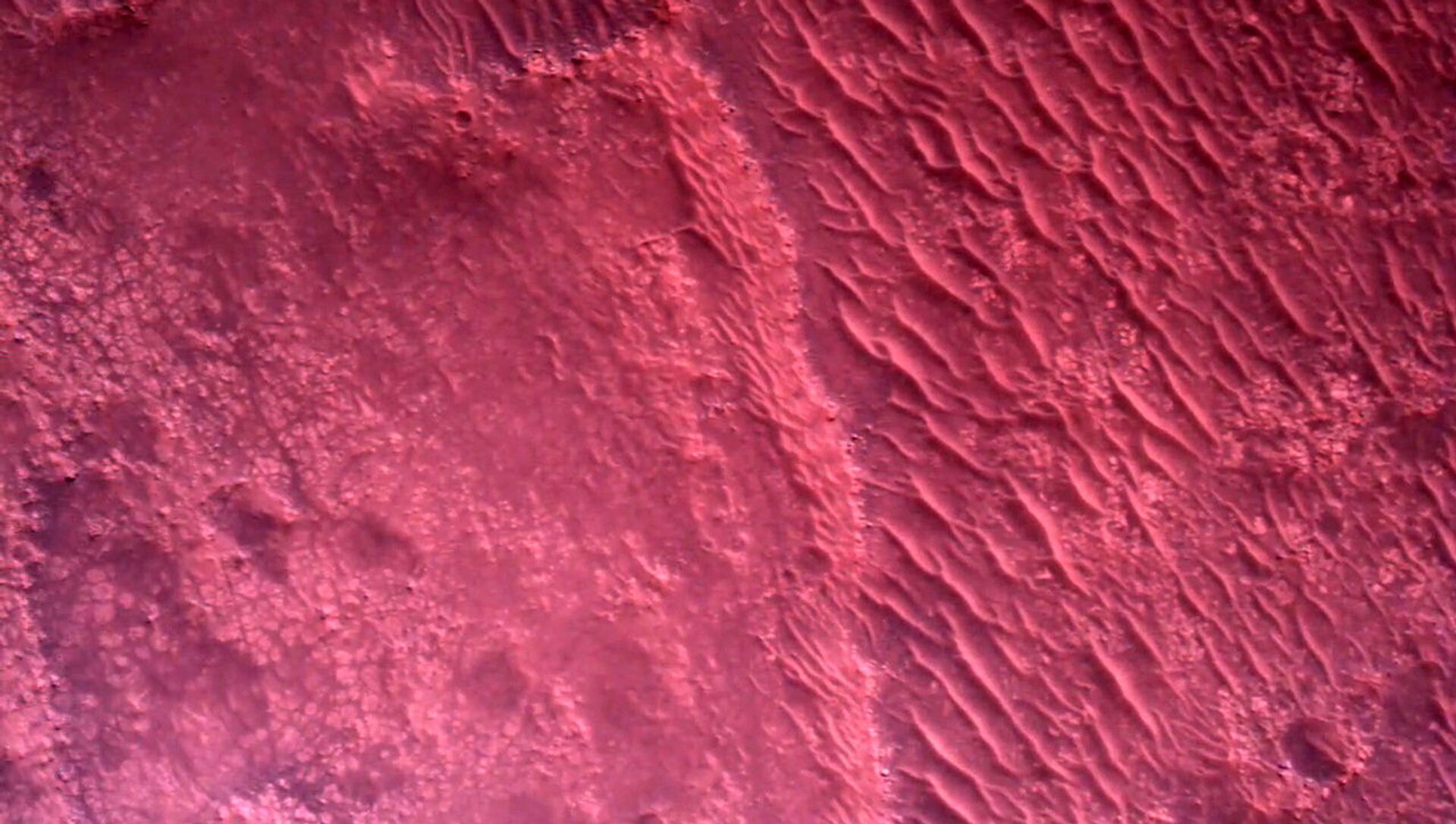https://sputnikglobe.com/20210806/nasas-perseverance-rover-collects-first-ever-sample-of-martian-rock-1083545409.html
NASA's Perseverance Rover Collects First-Ever Sample of Martian Rock
NASA's Perseverance Rover Collects First-Ever Sample of Martian Rock
Sputnik International
According to NASA, the key objective of the Perseverance Rover mission is astrobiology, including the search for signs of ancient microbial life. The rover... 06.08.2021, Sputnik International
2021-08-06T17:01+0000
2021-08-06T17:01+0000
2021-08-06T17:01+0000
newsfeed
world
nasa
mars 2020
perseverance
martian atmosphere
https://cdn1.img.sputnikglobe.com/img/07e5/02/18/1082168793_0:124:1281:848_1920x0_80_0_0_60fb7b18f2db498cc1bf63c781118dd7.jpg
The National Aeronautics and Space Administration's Perseverance Mars Rover on Friday collected the first-ever sample of Martian rock. The space agency took to Twitter and shared the first glimpse of the drill hole on Mars.Once the samples are brought back to Earth, researchers will be able to determine the age, as well as gain new insights into the planet's past.On Friday, the Perseverance Rover collected the rock core, which is about the size of a piece of classroom chalk, after looking for the perfect drilling spot for days. However, the sample will not be back on Earth before 2031.Launched last year, Perseverance is designed to explore the crater Jezero on the planet as part of NASA's Mars mission. It is accompanied by a helicopter, Ingenuity, which is the first rotorcraft to ever fly on Mars. So far, it has made 11 flights, often scouting terrain around the rover to help the scientists get a better idea of where they might want to explore next.Moreover, the rover will most likely keep exploring around Jezero’s floor until early 2022. After that, it will head towards the ancient river delta that is the mission’s ultimate target.
Sputnik International
feedback@sputniknews.com
+74956456601
MIA „Rossiya Segodnya“
2021
Sushmita Panda
https://cdn1.img.sputnikglobe.com/img/07e5/05/12/1082926186_0:0:2048:2048_100x100_80_0_0_4474d0d7e27a36878eb8727832be74b4.jpg
Sushmita Panda
https://cdn1.img.sputnikglobe.com/img/07e5/05/12/1082926186_0:0:2048:2048_100x100_80_0_0_4474d0d7e27a36878eb8727832be74b4.jpg
News
en_EN
Sputnik International
feedback@sputniknews.com
+74956456601
MIA „Rossiya Segodnya“
Sputnik International
feedback@sputniknews.com
+74956456601
MIA „Rossiya Segodnya“
Sushmita Panda
https://cdn1.img.sputnikglobe.com/img/07e5/05/12/1082926186_0:0:2048:2048_100x100_80_0_0_4474d0d7e27a36878eb8727832be74b4.jpg
newsfeed, nasa, mars 2020, perseverance, martian atmosphere
newsfeed, nasa, mars 2020, perseverance, martian atmosphere
NASA's Perseverance Rover Collects First-Ever Sample of Martian Rock
According to NASA, the key objective of the Perseverance Rover mission is astrobiology, including the search for signs of ancient microbial life. The rover will keep on collecting samples to help scientists understand the planet’s geology and past climate, and ultimately study the possibility of human exploration of the red planet.
The National Aeronautics and Space Administration's Perseverance Mars Rover on Friday collected the first-ever sample of Martian rock. The space agency took to Twitter and shared the first glimpse of the drill hole on Mars.
A study published by the journal Nature hours after NASA's Twitter post revealed that the scientists are excited that the rock could be volcanic in origin.
Once the samples are brought back to Earth, researchers will be able to determine the age, as well as gain new insights into the planet's past.
On Friday, the Perseverance Rover collected the rock core, which is about the size of a piece of classroom chalk, after looking for the perfect drilling spot for days. However, the sample will not be back on Earth before 2031.
Launched last year, Perseverance is designed to explore the crater Jezero on
the planet as part of NASA's Mars mission. It is accompanied by a helicopter, Ingenuity, which is the first rotorcraft to ever fly on Mars. So far, it has made 11 flights, often scouting terrain around the rover to help the scientists get a better idea of where they might want to explore next.
Moreover, the rover will most likely keep exploring around Jezero’s floor until early 2022. After that, it will head towards the ancient river delta that is the mission’s ultimate target.



